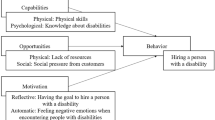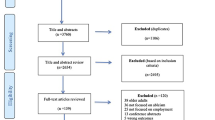Abstract
On-the-Job Training as a Cause of Brain Drain. —This paper presents a simple model based on the assertion that the efficacy of on-the-job training, as well as the productivity of skills, depends on the social stock of capital. It shows that as the degree of this dependency of on-the-job training upon capital stock increases, the problem of brain drain becomes more severe and more difficult to correct. The model may explain why the failure of foreign-educated students to repatriate is a more prevalent form of brain drain than outright migration of skilled labor. It is consistent with the repatriation pattern of Taiwanese students who received post-secondary education in Japan.
Zusammenfassung
Ausbildung am Arbeitsplatz als Ursache für Brain Drain. —Der Aufsatz liefert ein einfaches Modell, das auf der Annahme basiert, die Effizienz der Ausbildung am Arbeitsplatz hinge ebenso wie die Produktivität der Fertigkeiten vom sozialen Kapitalbestand ab. Er zeigt, daß in dem Maße, in dem diese Abhängigkeit der Ausbildung am Arbeitsplatz vom Kapitalbestand wächst, das Problem des Brain Drain gravierender und schwerer korrigierbar wird. So kann das Modell erklären, warum die Weigerung von Studenten, die im Ausland ausgebildet wurden, in ihr Heimatland zurückzukehren, eine weiter verbreitete Form des Brain Drain ist als die offene Auswanderung ausgebildeter Arbeitskräfte. Das stimmt überein mit dem Heimkehrverhalten taiwanesischer Studenten, die in Japan eine zusätzliche Ausbildung erhielten.
Similar content being viewed by others
References
Azariadis, C., and A. Drazen (1990). Threshold Externalities in Economic Development.Quarterly Journal of Economics, Vol. 105, pp. 501–526.
Bergstrom, V., and E. Panas (1992). How Robust Is the Capital-Skill Complementarity Hypothesis?Review of Economics and Statistics, Vol. 74, pp. 540–546.
Grubel, H., and A. Scott (1966). The International Flow of Human Capital.American Economic Review, Papers and Proceedings, Vol. 56, pp. 268–274.
Johnson, H. (1972). Labour Mobility and Brain Drain. In G. Ranis (ed.).The Gap between Rich and Poor Nations, pp. 380–391. New York: Macmillan.
Kwok, V., and H. Leland (1982). An Economic Model of the Brain Drain.American Economic Review, Vol. 72, pp. 91–100.
Lucas, R. (1988). On the Mechanics of Economic Development.Journal of Monetary Economics, Vol. 22, pp. 3–42.
McManus, W. (1985). Labor Market Costs of Language Disparity: An Interpretation of Hispanic Earnings Differences.American Economic Review, Vol. 75, pp. 818–827.
Mincer, J. (1962). On the Job Training: Costs, Returns, and Some Implications.Journal of Political Economy, Vol. 70, pp. 50–79.
Kossoudji, S. (1988). English Language Ability and the Labor Market Opportunities of Hispanic and East Asian Immigrant Men.Journal of Labor Economics, Vol. 6, pp. 205–228.
Stokey, N. (1981). Human Capital, Product Quality and Growth.Quarterly Journal of Economics, Vol. 106, pp. 587–616.
Tamura, R. (1990). Income Convergence in an Endogenous Growth Model.Journal of Political Economy, Vol. 99, pp. 522–540.




